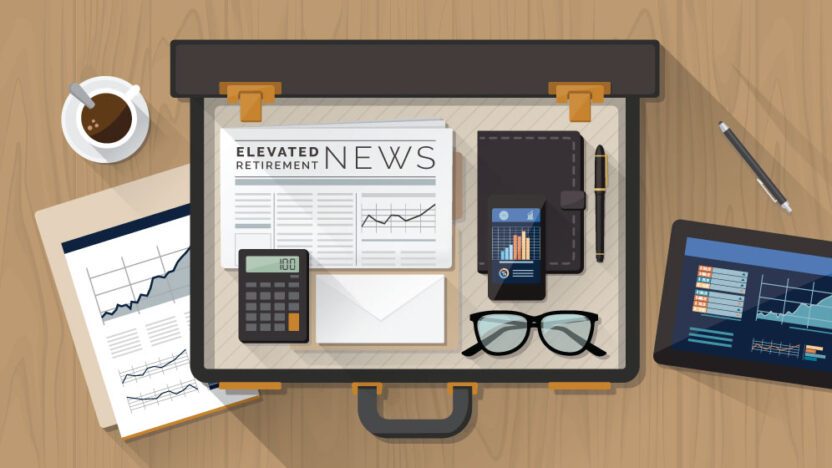
Briefcase Study: The Cash and Happiness Relationship
The Cash and Happiness Relationship
With the dramatic change in interest rates this year, a lot of people are rethinking how much cash is appropriate in a financial plan. And while the answer depends on goals, resources available for short or long-term needs, and personal preference, this reminds us of the big question people continue to ponder: “Does money buy happiness?”
There have been a number of recent studies completed to determine what makes us happy. In several studies, it was concluded that quality relationships are most important in determining levels of happiness. Other studies looked at the effect of money on happiness. In fact, research by the Nobel laureate psychologist and economist Daniel Kahneman showed that money increases happiness until about $75,000 annually, and after that our emotional well-being doesn’t increase with income. This has led many to conclude that ‘money doesn’t buy happiness,’ that is, not after a certain income level is reached.
What’s fascinating is the fact that ‘income’ isn’t necessarily ‘money’. Income is a rate of money earned each month or year; it’s not actually the only measure of money, however. Because of this, a study was done in the U.K. where researchers (Ruberton, Gladstine, and Lyubomirsky) studied 585 individuals to determine their Satisfaction With Life Scale responses and found that those with higher cash-on-hand bank balances were actually happier than those with less cash in the bank. In other words, happiness may not rise with a growing income, but cash in the bank tended to make people happier than those without much cash. Moreover, the study found that the amount of investments or net worth people had didn’t have the same happiness-boosting effect that cash-on-hand did.
Said a much simpler way, if you want to be measurably happier (and your spouse too, if you’re married), then a proven way to accomplish that is to find a way to save up more cash.
If you think about this conclusion, you can see why it’s likely to be true. Knowing that you have enough ready cash on-hand to handle just about any emergency can have a huge benefit to one’s psyche. On the other hand, future income, investments in a tax deferred retirement account, or value in a closely-held business, cannot provide the same benefit as cash because access to the money is generally restricted. You may have the money on paper, but you can’t easily get your hands on it. As a result, anxiety about day-to-day life events may curtail our ability to be free of general stress and live happily.
(A good rule of thumb is to shoot for three to six months of your normal monthly expenses in a safe, accessible cash account.)
So, what can we do to become happier, by way of increasing cash-on-hand? Here are some steps you can take:
Sell Stuff
Turn unused items into cash on eBay, Craigslist, or Facebook Marketplace
Buy Less Stuff
If you look for opportunities to avoid spending on unneeded items, cash can build up in bank accounts
Reduce Retirement Savings Temporarily
If you’re not retired yet, I’m not advocating shutting down retirement savings forever, just redirecting money into accessible cash accounts until your emergency fund is fully-funded
Consolidate and Clean-up Bank Accounts
Some people discover they have more cash on-hand than they realized because money is spread across multiple banks in several accounts. By consolidating accounts, the brain can more easily calculate the amount of savings available, which may elevate happiness and security levels
I hope you can agree with me that money isn’t everything. Far from it. What we can agree to get excited about is the opportunity to reduce our stress levels and enhance our levels of happiness by preparing for life’s uncertainties. By building up a cash reserve, we earn the right to take a deep breath and enjoy the journey a bit more. It’s long been said that there are some things money can’t buy, but a bit more happiness, it turns out, may not be one of those things.

